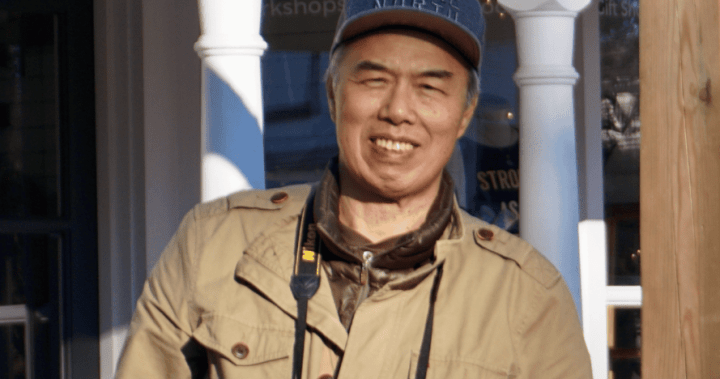Food rescue organizations call on Toronto hotel chains to ‘step up’ their policies

As food insecurity continues to escalate across Canada, food rescue organizations are raising concerns about hotel industry practices surrounding food waste, calling on major chains in Toronto to do more than pay “lip service” to sustainability.
Studies show nearly 47 per cent of all food in Canada is wasted, and almost 42 per cent of that food is till safe for consumption- highlighting the disconnect between surplus and need.
Many food upcycling and rescue organizations are eager to close this gap in the hospitality industry, but they are often met with logistical hurdles, vague sustainability policies and a lack of meaningful action.
Former hotel event staff Jasmine Manpreet, who worked events at the One King West Hotel, described how internal practices have changed in recent years, explaining how post-COVID-19 policies slowed down progress for food sustainability.
“A few years ago, staff would be able to store leftover food after events in the cafeteria but recently this has changed. Now we are required to toss out everything,” she said.
“There is so much leftover food that all gets wasted. It’s thousands of pounds … every month.”
Manpreet said that while hotels usually follow strict food policy practices for health and safety concerns, more should be done to bridge the gap between sustainability and practicality.
“I think there needs to be some updating on policies to reflect pre-pandemic structures, and they need to step up,” she added.
Global News reached out to One King but they declined to comment.
Winston Rosser, vice-president of food rescue operations at Second Harvest, Canada’s largest food rescue charity, confirmed that food waste in hotels and institutions remains a significant and under-addressed issue.
“About seven per cent of all avoidable food waste in Canada occurs at what we call the HRI level that include hotels, restaurants and institutions, which is about 1.4 million metric tons annually.”
Second Harvest says many hotels in Toronto still follow outdated food management and waste policies.

Get daily National news
Get the day’s top news, political, economic, and current affairs headlines, delivered to your inbox once a day.
While the organization does partner with some hotels in the downtown core, Rosser says there is more room for upcycling of food.
Global News reached out to some of these larger chains, including Marriot, Shangri-la, Fairmont and Sheraton, for comment about their food waste and sustainability practices but did not receive responses in time for publication.
“We know food insecurity continues to climb. Over 10 million Canadians, including 2.5 million children, are experiencing food insecurity,” Rosser said.
Rosser says operational changes like smaller buffet portion sizes and withholding untouched food for donation are simple and effective ways to manage surplus portions.
“There is a huge waste of food,” he said.
“There is a lot of high-quality prepared food coming out of hotels. With a little bit of upfront effort, this perfectly good food can be distributed, saving the business money while making a social and environmental impact.”
Some hotel chains have already stepped up to take the initiative to save surplus food.
The Chelsea Hotel, one of Toronto’s largest hotels, confirmed its involvement in food rescue initiatives.
According to hotel management, 35 to 45 events are hosted per month during peak seasons, with leftover food either repurposed or donated through Second Harvest.
“We try to repurpose some foods that are safe to use for future; otherwise, we save the rest for the food rescue program that we have partnered with Second Harvest for,” a spokesperson from Chelsea stated.
The hotel has implemented various food waste reduction strategies, from converting day-old bread into croutons to using bones for broth, overripe fruits for smoothies, and leftover food for staff meals.
The hotel also said organic waste is composted through a waste management company.
However, Tony Colley, founder and CEO of Be One to Give, a logistics platform to divert surplus food in real time to food-insecure communities, says many hotels in Toronto have yet to take up these initiatives.
“We have been fortunate to work with a prominent hotel here in the city … but not many hotels seem to have those sustainability departments.”
Colley believes that the biggest gaps lie in internal management and the lack of mandatory federal enforcement.
While Ontario’s Donation of Food Act protects businesses from liability when donating food in good faith, many hotels still cite legal fears or logistical issues, as reasons they don’t donate.
“I think from the hotels’ perspective, they really have to look internally,” Colley said. “Most food is cooked in stainless steel hotel pans and once that food service is complete, all that surplus food goes back into the kitchen and is simply discarded.”
Colley’s platform addresses many of the concerns hotels cite as barriers, like packaging, storage and cost, through a streamlined system.
“We actually provide the packaging. We provide the labels, and we provide the logistics. And the retailers who are sending this food to landfills, which they are paying for, now have a solution that is cheaper than garbage.”
Colley, who used to work as event staff at a hotel chain years ago, says he, too, was asked to discard surplus food. When he questioned the system and asked why food wasn’t being donated, management said they had no time to prep and package the surplus food and had to start prepping for the next event.
“Many of these big chains don’t have the knowledge to understand that there are ways to streamline these processes without impacting day-to-day schedules.”
Others in the food rescue space agree.
Spent Goods, a Toronto-based food upcycling company, says these initiatives must start at the management level.
“If there is management will, there are solutions that already exist to feed people instead of throwing it out,” a spokesperson said.
‘We’re dealing with a dual crisis’
The environmental and social consequences of food waste in Canada are hard to ignore.
Food waste in Canada produces approximately 124.5 billion pounds of greenhouse gas emissions annually, the same as emissions from 17.3 million cars on the road.
“We’re dealing with a dual crisis,” Rosser said, “a crisis of food insecurity and a crisis of climate change and food waste is deeply tied to both.”
As millions of Canadians struggle to put food on the table, thousands of pounds of edible food are tossed out behind hotel kitchens every day. The solutions, experts argue, already exist, it’s now a matter of taking action.
Until the hospitality industry takes stronger, systemic steps to reduce food waste, advocates say, the gap between surplus and need will continue to grow.


The Supreme Court of Canada has declined to hear an appeal of a lower-court ruling that upheld a First Nation’s ownership of a stretch of land at a popular Ontario beach after a lengthy dispute.
Canada’s top court has dismissed the appeal request from landowners and the province after a stretch of land along Sauble Beach was returned to Saugeen First Nation in 2023.

Get breaking National news
For news impacting Canada and around the world, sign up for breaking news alerts delivered directly to you when they happen.
This dismissal comes nearly two months after members of Saugeen First Nation changed the iconic “Welcome to Sauble Beach” sign that greeted beach visitors.
The temporary “Welcome to Saugeen Beach” sign was erected to reflect the First Nation’s ownership of the land, with the town’s mayor expressing disappointment that he wasn’t alerted of the change.
The Ontario Court of Appeal upheld last December the decision that 2.2 kilometres of the coastline in South Bruce Peninsula was incorrectly surveyed 170 years ago.
The portion of the land is valuable fishing ground for the First Nation community and was surrendered in 1854 in an agreement with the Crown to give up portions of Bruce Peninsula.
© 2025 The Canadian Press

The majority of post-secondary students in Ontario are stressed about their finances heading into the school year, a new survey found.
The survey from TD Bank, which collected data from post-secondary students across the country, found that 92 per cent of all respondents in Ontario are stressed about their finances.
“The survey was clear that our students are experiencing a lot of stress, which is a bit unique from previous generations because of the multitude of factors that are just hypersensitive at this point, with higher unemployment, higher cost of living, higher tuition,” says Joe Moghaizel, vice-president of everyday advice journey at TD.
The survey found that while 78 per cent of Ontario parents believe their child has experienced financial stress in the past three months, that figure was well below the actual number of 92 per cent.
“What’s interesting is the amount of pressure and stress that they’re currently facing and feeling, and the disconnect between what their parents believe they’re experiencing,” Moghaizel says. “Parents were not aware of the amount of stress that the students are feeling.”
Moghaizel pointed to a number of things leading to this financial pressure, including the high cost of living and high rate of unemployment among young people in a difficult job market, leading to many students to have what he called a volatile income.

Get breaking National news
For news impacting Canada and around the world, sign up for breaking news alerts delivered directly to you when they happen.
The survey also found that Ontario had the highest percentage of students stressed about tuition costs at 35 per cent, compared with an average of 26 per cent in other provinces.
The government of Canada estimates it will take almost 10 years for the average student to pay off their student loans and the total student loan debt in Canada surpassed $23.5 billion in 2022.
“You go back to over two decades ago, when I was in school, the financial pressures that students deal with now are significantly higher because tuition is a lot more expensive and the cost of living is more expensive, and inflation has really taken a bite at students,” Moghaizel says.
Another key takeaway from the survey was that 36 per cent of all respondents found that social spending stressed them out the most.
Moghaizel says the social pressure speaks to the online environment that students find themselves in today, where everything they do is shared online.
“They all feel the pressure to spend and keep up, which, again, it’s not too dissimilar from other age groups and we’re keeping up with the Joneses and just keeping up with the spending habit of your circle creates a bit of pressure,” he says.
Moghaizel says this can leave post-secondary students feeling ill-equipped to manage their finances better.
Despite the concern, Moghaizel hopes this information is not discouraging to students and is an opportunity to start establishing good financial habits early in life.
He said that with societal pressures, it’s good for students to understand their needs versus their wants, and focus on prioritizing the necessities. Moghaizel says that through tracking their spending, students can see where all of their money is going.
“We want to make sure that we’re equipping students with the right understanding of financial knowledge for the products and services,” Moghaizel says.
© 2025 Global News, a division of Corus Entertainment Inc.

A Canadian man has pleaded guilty to illegally photographing classified U.S. defence facilities at the Space Force military base in Cape Canaveral, Fla.
Xiao Guang Pan, 71, of Brampton, Ont., pleaded guilty to three counts of unlawful photographing of military installations without authorization on three separate days in early January.
A U.S. District Court in Florida judge put Pan on probation for 12 months and immediately ordered him deported to Canada by U.S. Immigration and Citizenship Enforcement (ICE) officers under the U.S. Immigration and Nationality Act, citing his violations of American espionage laws.
Pan did not immediately respond to a request for comment.
A U.S. Department of Justice official was unsure about where Pan is in the ICE deportation process.
Pan’s guilty plea and deportation come as anxiety grows among U.S. lawmakers and ordinary Americans about hundreds of unidentified drones flying over sensitive American military bases amid concerns about foreign surveillance and spying.
A copy of Pan’s plea agreement reveals a stark contrast between what Pan said he was doing in Florida in January, when he was stopped by police, versus what U.S. federal agents actually found on his drone, phone and storage devices after seizing them.
On an artist biography page published by the Brampton Arts Organization, Pan stated he was born in China in 1953, immigrated to Canada in 2001 and has lived in Brampton since 2003.
Pan worked as a Best Buy Canada technician for 18 years until retirement in 2022, the biography adds.
Pan entered U.S. via Detroit
Pan entered the U.S. on a tourist visa at the Ambassador’s Bridge in Detroit, Mich., on or about Nov. 2, 2024. The court documents don’t suggest what Pan was doing or where Pan travelled in November and December.
The retiree was charged by summons on Feb. 11 after the National Aeronautics and Space Administration (NASA) detected drone activity near the Space Force Base and called in law enforcement on Jan. 7.
Brevard County Sheriffs responded. They saw Pan operating a DJI Mavic Pro 3 unmanned drone quadcopter from a parking lot in Port Canaveral and learned he’d been in the area for three days.
The local officers then tipped federal law enforcement agencies.
Federal agents caught the Brampton resident using his powerful unmanned drone and a separate camera with telephoto lenses to photograph and video classified military facilities and equipment near the Space Force base on Jan. 5, 6 and 7, without the base commander’s prior authorization as required under U.S. law.

Get breaking National news
For news impacting Canada and around the world, sign up for breaking news alerts delivered directly to you when they happen.
According to a statement of facts found in the plea agreement, which Pan signed and initialled on every page, U.S. federal agents interviewed him twice – no dates were given – and asked the Canadian what he was doing with the drone.
They also warned him: lying to federal agents is a federal crime in the U.S.
“Pan told the agents that he had flown his drone to take pictures of the beauty of nature, the sunrise, and the cruise ship port. He stated that he had not seen any launch pads and that he did not know that he was near a military installation,” the plea deal states.
Pan voluntarily submitted his devices to U.S. agents for a forensic data extraction.
That’s when the investigators found more than sunrises, nature and cruise ship videos.
The data showed Pan had flown his drone nine times and taken 1,919 photographs and videos during his three-day Florida visit, the plea deal states.
Of those 1,919 photos and videos, 243 photographs and 13 videos showed specific images of Space Force base military infrastructure and launch facilities, including fuel and munitions storage facilities, security checkpoints, and a Navy submarine platform, according to the plea agreement.
On Jan. 6, his second day of flying the drone quadcopter, Pan took nine videos and 166 photographs of Space Force installations.
This time, he launched his drone from a location several miles closer to the base; his photographs and videos captured the same military infrastructure as on Jan. 5, but in higher quality and from different angles, according to the plea agreement.
Pan also captured images and videos of mission control infrastructure and fuel and munitions facilities, including a photograph of a Space Launch Complex and payload processing facilities operated by two defence contractors.
On the third day of his drone flying, and before he was encountered by law enforcement, Pan recorded two more videos and took 56 photos.
Day 3 images included security checkpoints
His Day 3 images and videos showed roads, power distribution infrastructure, security checkpoints, mission control infrastructure, national security space launch infrastructure, fuel and munitions storage, and naval infrastructure, the plea agreement states.
After police stopped Pan on Jan. 7, federal agents interviewed him twice.
During those interviews, Pan was warned that lying to agents is a federal crime. He did so anyway, the plea deal suggests.
In addition to telling agents he flew his drone to record nature, sunrises, and cruise ships and didn’t know he was near a military base, Pan said his drone sends alerts and warnings to his handset and he received no alerts or warnings, the plea deal adds.
Investigators recovered flight log data from Pan’s quadcopter. It showed that on all three days he flew, the drone logged several alerts and sent operator messages about altitude and FAA airspace violations.
On Pan’s cell phone, agents also found several screenshots he created, including several Google Maps satellite overviews of Cape Canaveral. One screenshot taken Jan. 7 while Pan was at his drone launch location, prominently displayed the words “Cape Canaveral Space Force Station.”
Pan surrendered his $5,000 quadcopter
Pan was charged in February after a multi-agency probe led by the U.S. Federal Bureau of Investigation, U.S. Homeland Security, and the U.S. Air Force Office of Special Investigations.
Pan surrendered his $5,000 quadcopter, control equipment and storage devices that housed his videos and photos to the U.S. authorities.
He is also banned from returning to the U.S. without prior consent from the Secretary of the Homeland Security department.

-

 Uncategorized3 months ago
Uncategorized3 months agoShop Proud, Eat Proud, Be Proud — Ottawa Canada Day Market This June 28th
-

 3 months ago
3 months agoCanada’s world junior trial saw juries tossed, intense testimony. Here’s a recap
-

 2 months ago
2 months agoRing of Fire road to bring prosperity to First Nation, problems for caribou: report
-

 2 months ago
2 months agoMeasles circulating in northeastern B.C. community, health officials warn
-

 3 months ago
3 months agoAnishinabek Nation chief says he briefed Ontario police on protests against Bill 5
-

 2 months ago
2 months agoFormer major leaguer, Jays doctor Ron Taylor dies
-

 2 months ago
2 months agoJagmeet Singh apologizes for attending Kendrick Lamar concert after Drake calls him out
-

 2 months ago
2 months agoDreaming of a lakeside cottage but can’t afford it? Co-ownership could open that door







